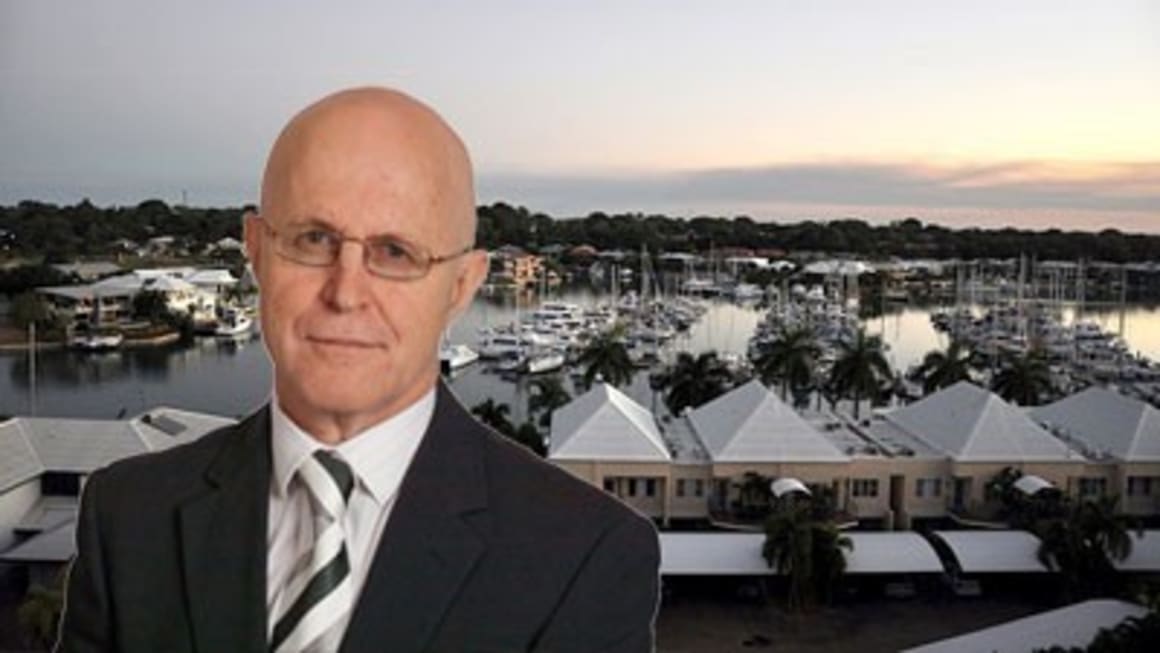Darwin a standout market for property investors: Terry Ryder

Darwin continues to be the standout market among the capital cities, with compelling statistics on vacancies, rents and prices.
I tend to see Darwin more as a regional centre than a capital city. Its size and function mark it one of the regional boom towns – which is where the real estate action is now and, I believe, in the future.
Our big cities are showing signs of stabilisation and gradual recovery, but the most dynamic of our regional centres are pumping strongly – and Darwin is part of that scenario.
On Monday I wrote that the core of the resources revolution and consequent real estate growth is not iron ore or coal, but gas. The growth in Darwin is exhibit A in my argument.
The Northern Territory is evolving into a gas hub of international significance. It started with the establishment of the ConocoPhillips LNG plant six years ago and will take another stride with the Ichthys gas project. This $34 billion enterprise will extract gas off WA but process it in Darwin.
At the same time, the territory government has sought companies to build and operate a marine supply base in Darwin. The base will be developed next to East Arm Wharf, and many of the companies based at the site will serve the oil and gas industries in the Timor Sea.The supply industry is already worth $150 million a year to territory business and is expected to grow strongly. The giant Bayu-Undan gas field is largely serviced from Darwin, and Woodside’s Sunrise floating platform will use the city for food, maintenance and transport. By the time Ichthys is operational in 2016, the supply industry in Darwin will be a multibillion-dollar business.
Paul Henderson, who was chief minister before being tipped out at the recent election, said: "The offshore gas industry is expected to be the biggest driver of NT's economy over the next 40 years."
As an aside, Charles Darwin University is spending $6 million on an oil-and-gas research and training centre at its Casuarina campus in Darwin. An agreement to set up mining academies in the territory was signed in March 2012.
It’s estimated the territory will need 6,000 additional workers in the next five years to meet demand from mining and gas companies.
The Port of Darwin is rising in importance, due to the increased exploitation of petroleum in the Timor Sea, the evolution of the LNG industry and continued expansion in trade with Asia. Darwin’s proximity to Asia makes it a key Australian gateway to countries such as Indonesia.
We’re already seeing the impact of all this in the real estate figures.
Darwin has very low vacancies. “With a current vacancy rate of 0.5% (total of 114 vacancies) it is fair to assume that the city is continuing to show all the symptoms of a severe rental crisis,” says SQM Research managing director Louis Christopher.
The previous over-supply of apartments in Darwin has been soaked up by the market.
This correlates with other data, such as the rental report from Australian Property Monitors, which finds Darwin is experiencing strong growth in rents for both houses and units, well ahead of other capital cities. The median house rent grew 18% in the 2012 financial year, giving Darwin by far the highest house rents (the median is $650 a week) among the state and territory capitals. It also has the highest median unit rent ($500 a week), after 11% growth in the 2012 financial year. Perth is the only other capital city producing strong rental growth at present.
The latest RP Data-Rismark home value index report shows that the Darwin index for all dwellings has recorded an 8.4% rise so far this year, including 5.2% in the three months to the end of August. None of the other state and territory capitals comes remotely close to these growth numbers.
The value index for houses has increased 7.7% so far this year, and the value index for units has risen 11.4%.
As Darwin continues evolving towards a gas hub of global importance, led by Ichthys, demand for residential accommodation will continue to rise. Who knows what the numbers will be a year from now.
Terry Ryder is the founder of hotspotting.com.au and can be followed on Twitter.